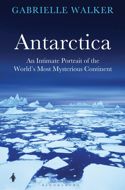 Analysis of a report on sea level rise — Sea-level Change: Living with uncertainty — published earlier this month by Nigel Lawson’s UK climate lobby group the Global Warming Policy Foundation, and written by NZ scientists Willem de Lange and Bob Carter, shows that it extensively plagiarises last year’s heavily criticised Non-governmental International Panel on Climate Change (NIPCC) report, funded and published by US lobby group the Heartland Institute. The GWPF report’s conclusions are taken word-for-word from chapter six of the NIPCC report — Observations: The Hydrosphere and Ocean [pdf] — also written by de Lange and Carter. Nowhere in the report do the report’s authors or the GWPF acknowledge the extent to which they rely on the earlier publication. Carter and de Lange fail to credit themselves, Heartland, or the NIPCC beyond a single reference to their chapter in the list of sources appended to the GWPF report.
Analysis of a report on sea level rise — Sea-level Change: Living with uncertainty — published earlier this month by Nigel Lawson’s UK climate lobby group the Global Warming Policy Foundation, and written by NZ scientists Willem de Lange and Bob Carter, shows that it extensively plagiarises last year’s heavily criticised Non-governmental International Panel on Climate Change (NIPCC) report, funded and published by US lobby group the Heartland Institute. The GWPF report’s conclusions are taken word-for-word from chapter six of the NIPCC report — Observations: The Hydrosphere and Ocean [pdf] — also written by de Lange and Carter. Nowhere in the report do the report’s authors or the GWPF acknowledge the extent to which they rely on the earlier publication. Carter and de Lange fail to credit themselves, Heartland, or the NIPCC beyond a single reference to their chapter in the list of sources appended to the GWPF report.
Here is the first policy recommendation from the GWPF report:
1. Abandonment of ‘let’s stop global sea-level rise’ policies
No justification exists for continuing to base sea-level policy and coastal management regulation upon the outcomes of deterministic or semi-empirical sea-level modelling. Such modelling remains speculative rather than predictive. The practice of using a global rate of sea-level change to manage specific coastal locations worldwide is irrational, and should be abandoned.
This bears a striking resemblance to the first of the “conclusions” offered on p796 of chapter six of the NIPCC report:
Abandon “let’s stop global sea-level rise” policies
No justification exists for continuing to base sea-level policy and coastal management regulation on the outcomes of deterministic or semi-empirical sea-level modeling. Such modeling remains highly speculative. Even if the rate of eustatic sea-level change was known accurately, the practice of using a notional global rate of sea-level change to manage specific coastal locations worldwide is irrational, and it should be abandoned.
The eagle-eyed will notice that words in italics are edited from the GWPF version, but in every other respect the two sections are identical. The final two GWPF conclusions are also drawn verbatim from the NIPCC chapter, as are many other parts of the GWPF report.
Where it draws verbatim on the NIPCC work, the GWPF report is both unoriginal and wrong, and where it can be bothered to be original it is also wrong. In either case it is work of shoddy scholarship that reflects badly on its authors, the institutions with which they are associated, and the GWPF.
Continue reading “Carter and de Lange’s GWPF sea level report plagiarises their own Heartland-funded NIPCC propaganda”
Like this:
Like Loading...
 Science journalist Gabrielle Walker’s book Antarctica: An Intimate Portrait of a Mysterious Continent (Bloomsbury, 2012) tells an absorbing story of the wide variety of scientific work undertaken in Antarctica and the support services that maintain it. It also attempts to capture the human fascination of the continent, not least for the author herself in her five sojourns there. She provides close-up observations of some of the specialist teams working on an array of investigations: penguins, seals, under-ice sea creatures, meteorites, astronomy, paleoclimatology, the dynamics of ice movement and loss, and more. Stories of the early explorers find a place, and the psychology which motivates people to undertake sometimes long scientific enterprises in such a demanding environment. Her book is striking and highly readable, often gripping.
Science journalist Gabrielle Walker’s book Antarctica: An Intimate Portrait of a Mysterious Continent (Bloomsbury, 2012) tells an absorbing story of the wide variety of scientific work undertaken in Antarctica and the support services that maintain it. It also attempts to capture the human fascination of the continent, not least for the author herself in her five sojourns there. She provides close-up observations of some of the specialist teams working on an array of investigations: penguins, seals, under-ice sea creatures, meteorites, astronomy, paleoclimatology, the dynamics of ice movement and loss, and more. Stories of the early explorers find a place, and the psychology which motivates people to undertake sometimes long scientific enterprises in such a demanding environment. Her book is striking and highly readable, often gripping.
 The government in New Zealand may make soothing noises about climate change impacts, but that is not an option for the Minister of Environment in Nigeria, Mrs Laurentia Mallam. She issued
The government in New Zealand may make soothing noises about climate change impacts, but that is not an option for the Minister of Environment in Nigeria, Mrs Laurentia Mallam. She issued  Analysis of a report on sea level rise —
Analysis of a report on sea level rise —  In which I pull together the strands of the recent bad news from Antarctica and Greenland, and lament the loss of the coastline we all grew up with — no longer a theoretical possibility but a long term certainty. Check out
In which I pull together the strands of the recent bad news from Antarctica and Greenland, and lament the loss of the coastline we all grew up with — no longer a theoretical possibility but a long term certainty. Check out